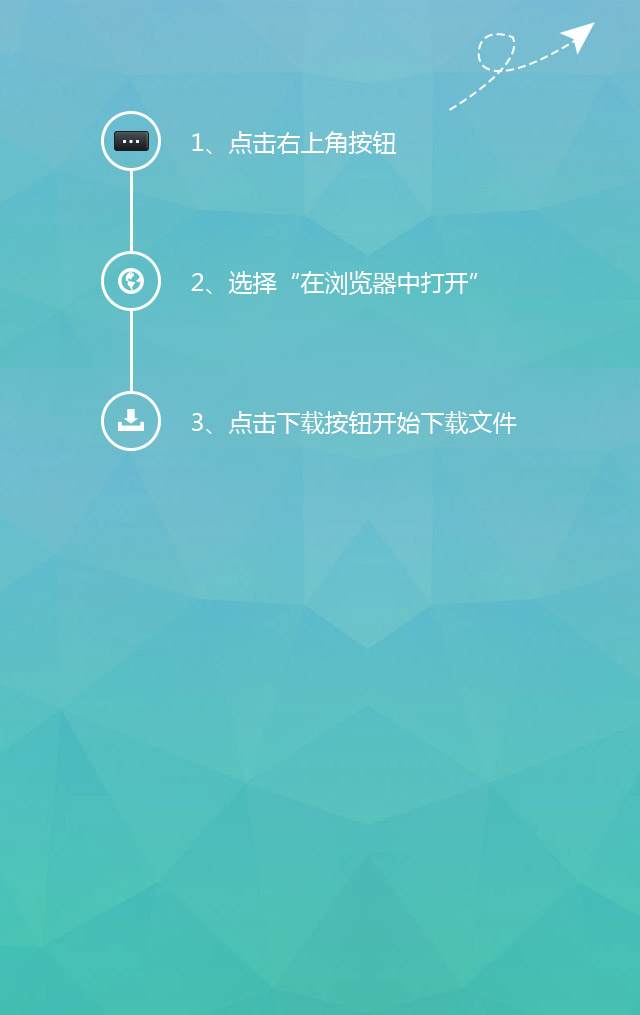第20课:黄金时光《走遍美国》
第20课:黄金时光《走遍美国》
ACT 1-1 “她真是忙个不停。”
【故事梗概】
Ellen和Philip各有工作,忙得没有时间互相关心或和家人在一起欢聚。这引起了Robbie和爷爷的不安。
[In the Stewarts' home at night. Grandpa is sitting in the living room. He is balancing his checkbook. Robbie enters and speaks with his grandfather.]
Robbie: Where's Mom?
Grandpa: She went to a school-board meeting.
Robbie: I don't know how she does it. She sure keeps busy.
Grandpa: It's important to her. There are lots of places to go, lots of things to do. She can't sit around and do nothing. Philip works late.
Robbie: I guess you're right. I wish I had her energy.
Philip: [He enters the house.] Anybody home?
Robbie: We're in here, Dad.
Philip: Oh. Hi, gang.
Grandpa: Hello, Philip. How was your day?
Philip: My day was just fine. So was my night. It's almost ten o'clock. Mmm, I'm starving. Um where's Mom?
Robbie: She went to a school-board meeting.
Grandpa: There's a note for you on the refrigerator.
Philip: Oh?
[Philip enters the kitchen and reads the note on the refrigerator door. It says, “Honey, wil be home late. Sandwiches in the fridge and cookies on the table. See you later. Love, Ellen.”]
【语言点精讲】
1. He is balancing his checkbook.
他在核对支票簿上的款额。
balance one’s checkbook: 核对支票存款户头。会计作业中,一纸中分为二栏,一边是资产,另一边是负债。二者相等则帐目无误,称为balance。checkbook是支票簿。美国的银行,会按月把客户当月所开的支票和收支对账单寄给客户,供其核对正确与否。客户要注意这些支票是不是自己开出的,以及在计算上是否有误。客户做这种核对的工作,称为“balance one's checkbook”。
2. I don't know how she does it. She sure keeps busy.
我真不知道她怎么受得了。她真是忙个不停。
sure (=certainly) 在这里是副词用法,修饰全句或谓语动词,强调说话人的感情或反应,特别多见于美国英语中的非正式口语。
keep busy: keep在这里是半系动词,后面带形容词表语。
3. There are lots of places to go, lots of things to do. She can't sit around and do nothing.
有许多地方要去,有许多事要做,她总不能闲坐着无所事事啊。
sit around and do nothing: 闲坐着无所事事。
4. I wish I had her energy.
我但愿我也像她那样精力充沛。注意wish的宾语从句里用了虚拟语态。
5. Anybody home?
家里有人吗?
6. We're in here.
我们在里面。
7. My day was just fine. So was my night.
我今天干的很好,今晚也干的很好。
8. There's a note for you on the refrigerator.
冰箱上有她给你留的条子。在美国,家里人互相留言,常写在纸条上用一块磁铁吸在冰箱上,因为一回家开冰箱找吃喝就看见了。现在有一种小纸本,每页上方有一条不干胶,写完撕下即可贴在引人注意的地方,商标名叫Post-it,也很受欢迎。
ACT 1-2 “一块曲奇饼干没关系。”
【故事梗概】
Ellen去参加校董会的会议了。晚归的Philip只能吃冷的三明治作为晚饭。
Philip: [He opens the refrigerator door and takes out a sandwich. He then sits at the kitchen table.] Did you have dinner, Robbie?
Robbie: Yeah. Mike and I had a hamburger at the diner. I came home a little while ago. You've been working late almost every night this week, Dad. Aren't you exhausted?
Philip: I don't have time to be exhausted.
Robbie: You and Mom haven't had dinner together with us in almost a full week.
Philip: Yeah, I feel bad about us not having dinner with the family, but our schedules are so different. Either I'm at the hospital doing paper work, or Mom is at a committee meeting. I frankly don't know what to do about it.
Robbie: I'm worried about you and Mom. You really have been working too hard.
Philip: Well, I think I've had enough of that sandwich. [He leaves the unfinished sandwich on the plate and gets up from the table.]
Robbie: You didn't finish it.
Philip: It's not good to eat before going to bed. A cookie can't hurt, though. [He and Robbie each take a cookie from a plate.]
【语言点精讲】
1. Mike and I had a hamburger at the diner. I came home a little while ago.
迈克和我在餐车式餐馆吃了个汉堡包,我刚回家不久。
diner: (外表像餐车的)餐馆。Diner原来是较小、较简陋的餐馆,常装璜成火车餐车的样式,而且通常24小时营业。近年来有些Diner餐馆门面越来越豪华,已超越传统的模样了。
2. I feel bad about us not having dinner with the family.
我们不和家里人一起吃晚饭,我觉得不对劲。
feel bad about doing sth.: 为做某事而心中感觉不安。
3. Either I'm at the hospital doing paper work, or Mom is at a committee meeting. I frankly don't know what to do about it.
不是我在医院里写书面材料,就是妈妈去开委员会。坦白地说我不知道该怎样解决。either…or…: 或者……或者,不是……就是……
frankly: 坦白地,直率地,真诚地。
4. Well, I think I've had enough of that sandwich.
哦,我想这三明治我也不想再吃了。
to have had enough of sth. /sb.: 常可在表示“足够”以外,表达一种厌烦情绪。如,
I've had enough of your excuses.
Haven't you had enough of that noisy rock music?
5. It's not good to eat before going to bed. A cookie can't hurt, though.
睡觉前吃东西不好,但一块曲奇饼干没关系。
hurt这个动词指造成损害或不利的效果,用否定式时产生了“也没什么不好,不妨……”的含义。表建议时可以说:
It won't hurt (you) to take a drink now and then.
It never hurts to be kind to others.
表推荐时可说:
I don't think a short walk after lunch will hurt you.
Just a chocolate or two won't hurt.
ACT 1-3 “黄金时间。”
【故事梗概】
Philip去睡觉了。Robbie和Grandpa继续交谈。Robbie对父母目前的这种“聚少离多”的状态很是担忧。
Philip: Well, I'm heading off for bed and a good night's sleep.
Robbie: Well, good night.
Philip: Good night, Son. [He goes into the living room.] Good night, Dad. I'm going to bed.
Grandpa: Good night, Philip.
Philip: Haven't you finished balancing that checkbook?
Grandpa: I found another mistake. I'll be off to bed myself in a minute.
Philip: OK. Good night.
[Philip leaves.]
Robbie: I'm really concerned about them, Grandpa.
Grandpa: Concerned about whom?
Robbie: About Mom and Dad. They hardly ever see each other. Dad often works late, and Mom has all these committees she's on.
Grandpa: What do you propose to do about it? You have that look in your eye.
Robbie: I don't know, but there must be a way of getting them to spend more time together Quality time.
【语言点精讲】
1. Well, I'm heading off for bed and a good night's sleep.
好,我要上床去了,好好地睡一觉。
head off for: 是表示“直奔某处而去”的意思,是非正式的美国口语用法。但对不是极熟悉亲密的人不宜这样说。
2. I'll be off to bed myself in a minute.
过一会儿我也要去睡了。
be off to: 与head off for同义,也是表示“直奔某处而去”的意思。
3. I'm really concerned about them.
我真为他们担心。
be concerned about: 关心,挂念。
4. They hardly ever see each other. Dad often works late, and Mom has all these committees she's on.
他们几乎互相不能见面。爸爸常常工作到很晚,妈妈又在那么多委员会里担任工作。
hardly ever: 几乎从不,很少。近义的表达还有almost never, seldom, rarely.
have all these committees she's on. : 在那么多委员会里担任工作。
5. What do you propose to do about it? You have that look in your eye.
你建议怎么办呢?从你眼神里看得出你有个主意。
propose to do…: 建议做……
You have that look in your eye. : 从你眼神里看得出有那个意思。当你从对方的表情中看出他的想法时,可以说这句话。
6. I don't know, but there must be a way of getting them to spend more time together. Quality time.
我不知道,但应该有个办法让他们俩有更多的时间在一起度过。黄金时间。
quality time: 黄金时光。当人们在一起做他们极乐意做的事,或极值得做的事时,他们这段相处的时光非常宝贵,称为quality time。有些美国人喜欢把工作日程排得满满的,所以有时一家人很难得有时间相聚在一起。特别是近几年来,职业妇女开始增多,她们与家人孩子相处的时间较少。因而美国开始提倡“Quality Time”,意思是与家人共处是很重要的,它不在于时间长短。
ACT 2-1 “我有一些心事。”
【故事梗概】
当天晚上,Robbie等着Ellen开会回来。他和Ellen讲了自己对父母这种几乎连见面的时间都没有的生活状况的担心。
Ellen: Hello there, Robbie. What are you doing up this late?
Robbie: Reading.
Ellen: Reading? At this hour? Ah, come on.
Robbie. What are you doing up this late?
Robbie: Things on my mind.
Ellen: Do you care to talk about them?
Robbie: Sure, if you don't mind listening.
Ellen: Robbie, Robbie, remember me? I'm your mother. If you have something you want to talk about, I'm always prepared to listen.
Robbie: You haven't been around much lately.
Ellen: So that's it. OK, let's talk.
Robbie: You and Dad are like ships that pass in the night. Dad works hard, and he works late. You work hard on all your committees, and you work late.
Ellen: I thought you were proud of the work I do.
Robbie: I am, Mom Real proud. You are one fantastic mom, but…but I've been noticing how little quality time you spend with Dad and Me …and the family.
Ellen: It's a real problem, Robbie. I know it.
【语言点精讲】
1. What are you doing up this late?
你这么晚不睡在干什么?
up: 醒着,不睡。在这里相当于awake.
this: 这样,如此。在这里相当于so.
2. Come on.
算了吧。实话实说吧,不要拐弯抹角。
3. Things on my mind.
我有一些心事。我在想一些事情。
on one’s mind: 在这里指有心事。
4. Do you care to talk about them?
你愿谈谈吗?愿意和我谈谈吗?
5. You haven't been around much lately.
最近你常不在家。
around: 在家。在这里相当于at home。
lately: 最近。
6. You and Dad are like ships that pass in the night.
你和爸爸像是黑夜交错而过的航船。
like ships that pass in the night: 像夜里交错而过的船。此短语可用来表示两个人之间没有时间相处,或只见到对方片刻。
7. I thought you were proud of the work I do.
我原以为你为我所做的工作感到骄傲。
thought: think的过去式thought后带名词(宾语)从句,句中亦用过去时,表示原来是这样想的,因而常有现在不这样想,或现在发现这不符合事实的意思。
8. I am, Mom. Real proud. You are one fantastic mom, but…but I've been noticing how little quality time you spend with Dad and Me …and the family.
我是感到骄傲,妈妈,真正的骄傲。你是一位了不起的妈妈,可是……可是我最近注意到你和爸爸和我在一起度过的黄金时间太少了……和全家在一起的时间太少了。
Real proud: 用real当副词修饰形容词或副词,限于美国口语中非正式用法,等于程度副词very,并带一定的感情色彩。
one fantastic mom:一位非常好的母亲。使用one+形容词+名词,比用 a+ 形容词+名词的结构显得更有感情。
ACT 2-2 “我想我有一个办法。”
【故事梗概】
Robbie建议他的父母一起去度假,但是Ellen认为他们的时间表不会允许他们去度假。于是,Robbie又提了另一个方案。
Robbie: I'm concerned. There must be a way that Dad and you can spend more time together.
Ellen: Well, we always talk about taking a vacation together -- with the family.
Robbie: I think you ought to take a vacation away from the family -- alone. Kind of a second honeymoon.
Ellen: It would be wonderful, but our schedules won't allow it.
Robbie: I think I have an idea.
Ellen: You do?
Robbie: Yup. I think I have an idea that will bring Dad and you together in a more scheduled way.
Ellen: What is it?
Robbie: Well, you know how Dad is always talking about the kids in the ward and how important it is for them to be paid attention to?
Ellen: Yes.
Robbie: Well…and how hard it is because the doctors and nurses are so busy?
Ellen: Yes.
Robbie: Well, how would it be if you took some time to work with Dad towards solving that problem?
Ellen: I don't get it.
【语言点精讲】
1. Well, we always talk about taking a vacation together -- with the family.
噢,我们总说要一起去度一次假期——同全家在一起。
take a vacation: 度假。
with the family: 同家人一起。
2. I think you ought to take a vacation away from the family -- alone. Kind of a second honeymoon.
我认为你们应该离开家里人去度一次假期——就你们两人在一起,好像是个第二次蜜月似的。
I think you ought to…: 我认为你(你们)应该,必须……。用此来表示一种很强的建议。
away from the family: 离开家里人。
kind of: 是美国口语用法,也说sort of,有时简拼为kinda或sorta,用于名词或动词前,或甚至独立使用,有较强的状语功能,表示“好像是……,有点像……,大概如此”等模糊概念。
3. I think I have an idea that will bring Dad and you together in a more scheduled way.
我想我有一个办法能使你和爸爸较为定期地在一起。
4. Well, you know how Dad is always talking about the kids in the ward and how important it is for them to be paid attention to?
噢,你知道爸爸总是在谈病房里的孩子们,说一件很重要的事是要有人关心他们。
ward: 是医院住院部的一间病房或一个病区。在这里显然是指儿科病区。
for them to be paid attention to:有人关心他们。
5. Well, how would it be if you took some time to work with Dad towards solving that problem?
那么,你为何不花点儿时间同爸爸一起设法解决这个问题呢?
How would it be if you took some time…? : 你何不花点时间……?用此结构来提建议。
work(with Dad)towards: (与爸爸合作)致力于某个目标。
6. I don't get it.
我不明白,我不懂。相当于I don't understand.
ACT 2-3 “你是个非常聪明的青年人。”
【故事梗概】
Robbie又向Ellen建了一个建议。这次,他巧妙地把父亲在医院的工作和母亲在教育方面的工作结合了起来,达到了使他俩产生共同兴趣的目的。Ellen对这个建议很感兴趣,夸他是个聪明的年青人。
Robbie: Like setting up a regular weekly reading program. You and Dad. You and Dr. Philip Stewart -- going to the children's ward once or twice a week and reading to them.
Ellen: Not bad. Not a bad idea, Robbie. As a matter of fact, it fits right in with something I'm working on right now with the school-board committee.
Robbie: What's that?
Ellen: I've been trying to work out a program in the public school that will bring parents and teachers together once a week to read to the students -- their own children, really. By doing that, it will encourage reading.
Robbie: So it might fit in with a program for reading to the kids in the hospital.
Ellen: You're right. We'll do it! I'm going to talk to Daddy about it right now.
Robbie: But Dad was so exhausted when he came home from work. Why don't you talk to him about it tomorrow?
Ellen: You are a very smart young man, Robbie. I think I'll wait until tomorrow.
Robbie: You won't forget, will you?
Ellen: Believe me, I won't. It is a great idea, and I promise you I won't forget.
Robbie: Thanks, Mom.
Ellen: Thank you, Robbie. [She hugs him.]
【语言点精讲】
1. Like setting up a regular weekly reading program.
例如建立一项每周一次的阅读计划。
2. As a matter of fact, it fits right in with something I'm working on right now with the school-board committee.
事实上,这恰好同我正在和校董会委员会研究的一件事相吻合。
as a matter of fact: 事实上。
fit right in with: 恰好与……相吻合。
3. I've been trying to work out a program in the public school that will bring parents and teachers together once a week to read to the students -- their own children, really.
我一直在研究要在公立学校设立一个计划,把家长和教师们聚在一起,每周一次给学生们——实际上是给他们自己的孩子们——读故事书。
try to do sth.: 尝试做某事。
work out a program: 制定出一个计划。想出一个方案。
4. But Dad was so exhausted when he came home from work. Why don't you talk to him about it tomorrow?
可爸爸从医院下班回来后累得不得了,你明天再和他谈这件事不行吗?
Why don’t you do sth.? : 这是一个用于提建议的常用句式。
5. You are a very smart young man.
你是个非常聪明的青年人。
Robbie不但提出了好建议,还能指出马上找Philip谈是不恰当的,故此Ellen说他smart。称未成年男孩为young man表示对他的尊重或期望,但有时对方会不高兴,认为有调侃的意思,宜慎重。
ACT 3-1 “你这话我再同意不过了。”
【故事梗概】
第二天早上,当Philip喝咖啡读报纸的时候,Ellen 过来和他讨论她正在筹备的阅读项目。
Ellen: Good morning. What a wonderful morning! Don't the flowers smell wonderful?
Philip: Good morning,Ellen. Yes, they do. That's why I'm reading my paper and having my coffee on the patio this morning. Ah, it does smell sweet. How was your school board meeting last night? You must've come home very late.
Ellen: Did you find the sandwich I made for you?
Philip: Thanks, dear. I was so tired! I didn't even finish it.
Ellen: Philip, I've been working on this special project with the school board, and I'd like your opinion about it.
Philip: What is it?
Ellen: I have been trying to find a way to encourage reading.
Philip: Good luck!
Ellen: Well, I think I may have found a way to do it.
Philip: Tell me about it. I work with families every day, Ellen. I see how people spend their leisure time -- young and old.
Ellen: Mostly watching television. Well, that would be OK if, and I repeat, if people took the time to read.
Philip: I couldn't agree with you more.
【语言点精讲】
1. What a wonderful morning! Don't the flowers smell wonderful?
What a wonderful morning! : 多好的早晨啊!这是一个由what引导的感叹句。
Don't the flowers smell wonderful? : 这花儿闻起来好香,是不是?这是一个反问句,问话者在期待对方赞同自己的观点。
2. It does smell sweet.
它的确闻起来很香。
does:在这里表示强调,后面接动词原形。
3. You must've come home very late.
你(昨天)一定回来得很晚。
must have come:在推测过去发生的事时,must do变为must have done。
4. I've been working on this special project with the school board, and I'd like your opinion about it.
我一直在和学区校董会设计一项特别项目,我想听听你对这项目的意见。
5. Good luck!
祝你好运!在这里Philip的意思是:祝你成功!这说明Philip认为要想使学生阅读是一件很可能劳而无功的事。
6. Well, I think I may have found a way to do it.
嗯,我认为我可能已经找到一种办法能做到这一点。
I may have found…:我已经找到……。这是一个虚拟语气的句子。用may have+ 过去分词或者 might have+过去分词,表示“过去可能”。
7. Mostly watching television. Well, that would be OK if, and I repeat, if people took the time to read.
对,主要就是看电视呗。说起来,那到没有什么关系,只要,我再说一遍,只要人们肯花时间去读书。
if, and I repeat, if…:要强调话中某个词时常用这个说法。又如I will not, and I repeat, not, allow you to stay out till after eleven.
8. I couldn't agree with you more.
你这话我再同意不过了。这是常用的强调地表示同意的说法。
ACT 3-2 “从你的神气里可以看得出来。”
【故事梗概】
Ellen向Philip描述了自己的计划,她以商量启发的口吻征求Philip的意见,并且事先以温情的语言来引导。果然,Philip对于阅读计划逐渐积极起来,并主动提出在医院儿科病区里开始。
Ellen: The question is, how do we get them to read more?
Philip: I think you're going to give me the answer to that question. You have that look in your eye.
Ellen: I do have an answer, Philip. Or at least I think I do.
Philip: Well, tell me about it.
Ellen: The plan is a simple one. Involve the entire family in a reading project.
Philip: In the home?
Ellen: Yes, in the home. But first in the schoolrooms.
Philip: Hmm, interesting. But how do you plan to do that?
Ellen: By arranging with the public schools to schedule one hour a week -- to start with. During that time parents are invited to attend -- and to read along with the children -- their children.
Philip: It can go beyond the school system, Ellen.
Ellen: Really?
Philip: I guarantee you it would go very well in the hospitals. My patients -- mostly kids -- would love to read and be read to.
Ellen: You think so?
Philip: I know so.
【语言点精讲】
1. The question is, how do we get them to read more?
问题是,我们怎样才能促使他们多读一些书呢?
2. I think you're going to give me the answer to that question. You have that look in your eye.
我想这问题的答案正是你想要告诉我的,从你的神气里可以看得出来。
You have that look in your eye. : 在这里的意思是I can see from your eyes that… . 英语中常用单数的eye表示一种容貌的特点、判断力、性格或表情。又如,He has an eye for the best designs. /She had sadness in her eye. 单数的ear也常用来表示判断力,如,I have no ear for music.
3. I do have an answer, Philip. Or at least I think I do.
我的确已经有了答案,Philip,至少我认为我已经有了答案。
4. Involve the entire family in a reading project.
让全家人都参与阅读计划。
5. By arranging with the public schools to schedule one hour a week -- to start with.
与公立学校商定好,开始先每周安排出一个小时的时间(搞阅读)。
public schools:在美国指公立学校,而在英国却指相当贵族化的少数几所私立寄宿学校,学费很贵。
6. It can go beyond the school system.
这种做法可以推广到学校体制以外的范围。
beyond: 超出。
7. I guarantee you it would go very well in the hospitals. My patients -- mostly kids -- would love to read and be read to.
我向你保证,这项活动可以在医院里开展得非常好。我的病人——主要是孩子们——会很喜欢自己阅读和听别人朗读的。
I guarantee: 我保证。
go: 在这里是“推行,行得通”等意思。又如,I think your plan won't go with the factory owners.
ACT 3-3 “你愿和我一块儿干吗?”
【故事梗概】
Ellen和Philip都认为在医院里给孩子们读书是个很好的计划,这也可以让他们有更多的时间在一起。
Ellen: Maybe we can experiment with your patients and see how the plan works.
Philip: I love the idea. Would you work with me on it?
Ellen: I would love to, Philip. [She sits on his lap.]
Philip: And that way, we'll spend more time together, Ellen. We just don't see each other anymore.
Ellen: You and I are very busy these days. This is true. We need to find time to be together more, to do things together more----you and I. This would be a wonderful way to accomplish that.
Philip: I have a question.
Ellen: Yes?
Philip: What do we read?
Ellen: To the patients in the ward?
Philip: Yes.
Ellen: Well, let’s you and I talk about it. What would you like to read to them?
[They think.]
【语言点精讲】
1. Maybe we can experiment with your patients and see how the plan works.
也许我们可以在你的病人中先试试,看这项计划是否可行。
experiment with: 用……来进行试验。
2. Would you work with me on it?
你愿和我一块儿干吗?
3. I would love to, Philip.
我非常愿意(和你一块儿干)。
I would love to: 在这里是I would love to work on it with you. 的省略。
4. She sits on his lap.
她坐在他的腿上。
lap: 膝盖。
5. And that way, we'll spend more time together, Ellen. We just don't see each other anymore.
而且那样一来,我们就会有较多的时间在一起了。我们俩现在简直是谁也看不见谁了。
6. Well, let’s you and I talk about it. What would you like to read to them?
嗯,你和我两人商量一下吧。你愿意给他们读什么书呢?
let's you and I: let's是let us的略语,因此这样说是不合语法的,但在美国却很常听见,不以为怪。
ACT 3-4 “雪夜林边小驻”
【故事梗概】
几天之后,在医院里,Philip and Ellen试行了他们的阅读计划。他们为孩子们朗读了Robert Frost的诗歌并取得了大成功。
Philip: Mrs. Stewart and I will read a poem by Robert Frost.
Ellen: It's called “Stopping by Woods on a Snowy Evening”.
Philip: Would you begin, Ellen?
Ellen: All right. “Stopping by Woods on a Snowy Evening” by Robert Frost.
[She reads the poem.]
“Whose woods these are I think I know.
His house is in the village though;
He will not see me stopping here
To watch his woods fill up with snow.”
Philip: [He reads the poem]
“My little horse must think it queer
To stop without a farmhouse near
Between the woods and frozen lake
The darkest evening of the year.
Ellen: He gives his harness bells a shake
To ask if there is some mistake.
The only other sound's the sweep
Of easy wind and downy flake.”
Ellen &Philip: “The woods are lovely, dark and deep
But I have promises to keep,
And miles to go before I sleep,
And miles to go before I sleep.”
Grandpa: You two belong on stage! That was wonderful!
Ellen: Grandpa!
Philip: Dad…Robbie. When did you come?
Grandpa: We've been listening to you both. These are lucky kids.
Robbie: Do you enjoy reading together?
Philip: Well, we may read together aloud at home.
Grandpa: You were right, Robbie.
Robbie: [He smiles.] I know.
【语言点精讲】
1. Mrs. Stewart and I will read a poem by Robert Frost.
a poem by Robert Frost: Robert Frost作的一首诗。
Robert Frost: 是美国最著名的诗人之一。他的诗曾四次获得Pulitzer奖。Frost的许多诗是描写乡下农村生活的。他的诗也以富有哲理而著名。他曾说过: 他的梦想是写出“几首难被人抛弃的诗”。Frost的最著名的诗包括: “摘苹果之后”,“补墙”,“没有走过的路”以及“雪夜林边小驻”。最后这一首是美国学校中最常研读的诗之一。
2. It's called“Stopping by Woods on a Snowy Evening”.
Stopping by Woods on a Snowy Evening: 雪夜林边小驻。是Robert Frost写的最著名的诗作之一。
woods: 树林。
3. Whose woods these are I think I know. /His house is in the village though; /He will not see me stopping here / To watch his woods fill up with snow.
我想我知道树林的主人,/ 然而他的房子远在它村。/ 他看不见我在这里停留,/ 看着皑皑白雪落满树林。
fill up with: 积满,落满。
4. My little horse must think it queer / To stop without a farmhouse near / Between the woods and frozen lake / The darkest evening of the year. /
我的马驹一定在诧想 / 为何停在远离农舍的地方,/ 在一年中最黑暗的夜里 / 停在林边与冰封的湖旁。
queer: 奇怪,与众不同。queer在句中是宾语补语。注意,这个字用在男人身上时过去是“同性恋者”的委婉说法,不宜用。
frozen: 结冰。
5. He gives his harness bells a shake / To ask if there is some mistake. / The only other sound's the sweep / Of easy wind and downy flake.
他轻摇銮铃,似乎在问 / 是否我停错了地方。/ 万籁无声,只有微风轻拂 / 使羽毛般的雪片习习作响。
harness: 马具,挽具(将马系在车上用的皮革或金属套)。
sweep: 一阵……(掠过)。
downy flake: 柔细的雪片。downy是down(n.,羽绒)的形容词形式。这种表达方式仅用于诗歌中。
6. The woods are lovely, dark and deep / But I have promises to keep, / And miles to go before I sleep, / And miles to go before I sleep.
树林多么美好,黝暗深邃,/ 但我与人有约,不能违背。/ 还需长途跋涉才许入睡,/ 还需长途跋涉才许入睡。
have promises to keep: (我)要遵守诺言。可以用have+ n.+ to do(sth.)的结构来解释你为什么不能去做其他的事情。例如:I can't stay because I have work to do.
推荐
-

-

QQ空间
-

新浪微博
-

人人网
-

豆瓣

